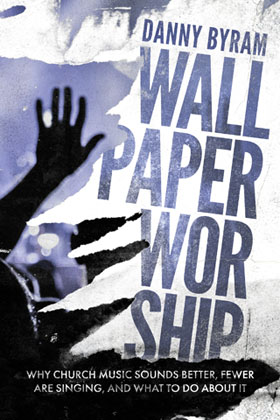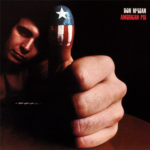loading...

by Danny Byram | Oct 29, 2018 | Church Leadership, Contemporary, Leadership, Liturgical, Traditional, Worship, worshipmusic

I’ve always found the phrase – “We’ve always done it this way” – annoying. I remember my parents (dad a clergyman, mom a church musician) using it when it came to church music and worship. Their form was an organ on one side, piano on the other with a choir in robes in the middle. They knew nothing different. No matter where we would attend, in a different town or state, the form of worship – as well as the nomenclature by leaders and worshippers – was identical. This was it for hundreds of years until the Jesus Movement (cr 1968-74) changed everything. Guitars, folk instruments and undergrads in casual clothing began to appear on church platforms. Many times these young, excited believers were escorted out of the church by older church leaders likely grumbling: “We’ve always done it this way.”
I hear the phrase still used today, but not by crotchety, balding believers of a greying generation. It is spoken by church leaders in their late 20s and early 30s. In place of pianos, organs and choir chairs the platforms are filled with drum cages, keyboard rigs and Stratocasters with effects pedals. Overhead are multi colored light rigs, massive video screens, smoke machines and video jib arms. While performing (oops…leading), a shoulder cam operator runs around the stage up into the faces of those performing (oops…there I go again…LEADING). When I talk with these young leaders, to suggest perhaps using an ancient creed – or a variety of instrumentation – or responsive reading of scripture – or an acapella every demographic knows (like Amazing Grace without added lyrics from last year’s “radio worship artist” release), here comes the phrase: “We’ve always done it this way.” Like my parents, they know nothing different. Today, no matter where I attend, in a different town or state, the form of worship – as well as the nomenclature by leaders and worshipers – is identical.

Where we are in the “worship cycle” is the youth group rock bands of church basements from 15-20 years ago have come of age. They are now the decision makers in charge of church budgets. What used to be relegated to youth groups, with dilapidated gear from teenage bedrooms, is now polished, front and center. The vibe is: “we’re in charge now, and we’re gonna do this right.” Just like my parents, the current form is all they’ve known.
Increasingly normal is the online streaming of these worship services (oops…”worship experiences.”) Technology has perfected to allow local church platforms to be viewed online for millions of unnamed, unknown, un-faced fans. Many leaders have told me because their online audiences are exponentially larger than their local congregation, onliners are the group they are actually playing to. The attending congregants are now the studio audience for the larger group, somewhere out there watching and giving offerings on their phones.
What an interesting age in which we are doing church. Even though some young families are walking away to start home churches to “do life together,” the current form is firmly established. A cursory historic observation reveals that trends cycle because of a movement, started in spite of the church’s instituted ways, and usually under the church’s nose. No one knows when or where the next movement will start or how it will bring change. But why it will start is likely found behind the phrase: “We’ve always done it this way.”
“All that now is will be forgotten in the days to come.” Ecclesiastes 2:16
Singer/Songwriter/Speaker/Author Danny Byram has performed on over 100 US military installations worldwide. He toured South Korea 15 times & has performed/spoken to US troops in Iraq, Kuwait, Bahrain, Europe, Central America, South America, the Pacific Rim and aboard many surface vessels. His work earned him the name “The Combat Musician.” Danny produced and directed 26 Promise Keepers Stadium Events for men, including the Clergy Conference (largest gathering of clergy in history) and co-directed Stand In The Gap, Washington DC, which drew over a million men to the National Mall. He produced and directed 36 FamilyLife Arena Events for couples working alongside Marantha! Music and Integrity Inc. Danny and Angela Byram live in Colorado and have 3 adult children and two grandsons.
Photos: Top: Rachel Lynette French@rachellynette Middle: Abigail Lynn@shmabbss

by Danny Byram | Oct 8, 2018 | Church Leadership, Gratitude, Leadership, Worship

I strolled near a golf course one morning, enjoying some solitude. The blue sky, well-kempt greens, chirping birds, and squeaking squirrels made for a pristine setting. As I sat on a bench to quietly read, I was interrupted by a sound out of character to the morning. A large falcon swooped down to perch high atop a nearby pine tree. Its wings cut through the morning air with an ominous swish. His song was not a melodious chirp, but a high pitched cry announcing his arrival. There he stood, head moving from right to left, back and forth. He stretched his wings and pulled them back into himself. He paused, waited, observing the surroundings.
Just then came four golfers, talking, looking for their golf balls, setting up for their next shots of play. Two of them walked directly under the falcon. They had no awareness of his presence above them. The falcon was very aware of theirs. He watched their every move and was privy to their conversation. I watched from the distance, wondering if the falcon would fly off, spooked by their noise. Perhaps he knew taking flight would have drawn attention to himself. The golfers played their shots, continued their conversations and moved on, unaware of the bird of prey’s presence.
As I reflected on the drama of this moment, it reminded me of 2 Chronicles 16:9: “For the eyes of the Lord move to and fro throughout the earth…” As God-followers, we are aware of His ability to see every move, hear every word, and know every intent of our hearts. Those traits can be intimidating until we acknowledge the latter half of that verse: “…that He may strongly support those whose heart is completely His.”
While God is watching us like a falcon, that verse reminds us of the reason He does so: to strongly support us. Our humanness lies, trying to convince us God is watching in order to swoop down, disrupt our lives, steal our golf cap or scratch us with his talons. But the scriptures say differently: “We know that God causes all things to work together for the good of those who love Him and are called according to His purpose.” “If God is for us, who can be against us?” (Romans 8:28, 31).
As I walked away from that moment, I asked myself: “Am I like the golfers: unaware, preoccupied, or perhaps judging God’s intentions?” When lies try to grip me, His true character quietly resonates through the scriptures, when I stop and ponder them.
King David poetically articulated God’s falcon-like presence:
“You have searched me, Lord, and you know me.
You know when I sit and when I rise;
you perceive my thoughts from afar.
You discern my going out and my lying down;
you are familiar with all my ways.
Before a word is on my tongue
you, Lord, know it completely.
You hem me in behind and before,
and you lay your hand upon me.
Such knowledge is too wonderful for me,
too lofty for me to attain.
Where can I go from your Spirit?
Where can I flee from your presence?
If I go up to the heavens, you are there;
If I make my bed in the depths, you are there.
If I rise on the wings of the dawn,
If I settle on the far side of the sea,
even there your hand will guide me,
Your right hand will hold me fast.” Psalm 139:1-10 NIV
Today, I want to be aware that God’s falcon-like eyes are finding me because I am His. What a comfort that this magnificent God is watching me simply because He wants to support me. Yet another reason He deserves our worship!

by Danny Byram | Sep 24, 2018 | Church Leadership, Leadership, Music & Songwriting, Worship, worshipmusic

I love living in this age of ministry. I wish it had come sooner. In my early Christian/singer/songwriter career in the 1990s, most churches and military chapels where I performed still reflected the church architecture of the 1920s. A piano on one side, organ on the other, 50 choir chairs as a backdrop – you get the picture. We would arrive, and begin moving the chairs, move the piano up on stage, and figure out where to put the heavy wooden pulpit. Then, hunt for a 6-foot folding table and position it on top of the pews where we could mix sound. Finally, we would haul in our sound system. At the time, most church PA (Public Address) systems were designed for talking heads, and guaranteed fidelity akin to AM radio news coming through 3″ speakers in a 1965 Plymouth.
We used to moan and dream about the day when church platforms would be designed for communicating with the tools that the rest of the performing world were using: lighting, screens, and world-class sound. As usual, the church was decades behind. But we’ve caught up! Yay! Today I only have to show up, plug in and play. Oh yeah…and minister the Gospel. But now, with all the gear and gadgets, we can also entertain while we minister truth. How cool. How relevant. How risky. Here’s why…
While entertainment can communicate truth, its greater purpose is to distract, help us forget our pain and temporarily check out of reality. True worship makes us focused, aware, and present in the reality of how much we need God’s grace and mercy. That reality can be hard on us emotionally as we stare into His holiness and have a similar reaction as Isaiah: “I am undone for I am a man of unclean lips and I dwell among a people of unclean lips.” (Isaiah 6:1-5) It is very human to want to skip the emotional challenge of facing His holiness and our un-holiness.
I can already hear some reacting: “Wait! We are more than conquerors – We share the righteousness of Christ – God doesn’t see our sin anymore – He suffered so we wouldn’t have to!” Absolutely correct. Yet the paradox in those truths is we can be incredibly naïve to think the Christian experience is for the purpose of eliminating discomfort, especially how, when or where we are triggered to stumble, even as believers. Paul assured us (2 Corinthians 7:10) that kind of “Isaiah sorrow” is an appropriate response to God’s presence, for that kind of sorrow leads us away from sin’s influence and into His holiness, which transforms us (Isaiah 6:6-7). We don’t need more information. We need more transformation.
True worship leads us away from ourselves, our preferences, our tastes, our story and into His heart, His reality, His preferences, His story. We say we have the greatest life-changing Gospel message the world has ever heard. Yet it takes more gear, better gadgets and shorter sound bites to get people to pay attention. What an interesting age in which we live!
Want entertainment with your Gospel? Fine. It’s available everywhere. Just remember it’s simply a tool to communicate a Gospel that can be uncomfortable yet truly life-changing.
“Let us consider how to stimulate one another to love and good deeds, not forsaking our own assembling together, as is the habit of some, but encouraging one another; and all the more as you see the day drawing near.” Hebrews 10:24-25

by Danny Byram | Sep 2, 2018 | Church Leadership, Gratitude, Leadership, Worship

Imagine being invited to dine at the most influential and wealthiest person’s home in your city. As you try to get over the fact you were invited at all, you’d probably be curious: why was I invited? After you are convinced this is real, you prepare for the big evening. Clothes: check. Teeth brushed: check. Car washed: check. Manners: check.
The big night is here! You are greeted at the door by a butler and escorted in. Suddenly the host appears. He and his wife are thrilled you have come. Something is awry as you look around. You are the only one invited. The meal is served and it is perfect. The conversation is all about you: your dreams, your goals, your marriage, your kids, your family. After dessert (a perfect chocolate mousse cake with raspberry puree!), everyone shares their favorite song, poem, book, or movie. The evening ends with an invitation to come again. It was perfect. The next day what do you do? (Hint: what did your mother teach you?) Write a “thank-you” note!
God has invited us to an incredible feast. Jesus, His Son, has opened the door to the parlor and greets us like an excited host. Through His incredible gift of love, grace, mercy and redemption He has made it possible for all who desire, to come and partake of His Father’s feast. Once we walk through the door (John 10:7) we begin to experience a meal of love, joy, peace and fellowship that makes anything else seem like a quick grub fest at a greasy spoon. So what then is our response to God? (Hint: what did your mother teach you?) Worship, no matter the style, culture or location, is our thank-you note to God.
In Luke 19:37-38 Jesus is journeying toward Jerusalem and a multitude of His followers began shouting “Blessed is the King who comes in the Name of the Lord! Peace in heaven and glory in the highest!” The text reveals why they were shouting: they began to praise God for all the mighty works they had seen. What mighty works have you seen? What miracles have happened in your life? What have you prayed about lately that you have seen the answer revealed?
As we gather to worship, how ever we worship, our songs – recitations – sacraments – prayers – rejoicing – praying – weeping – are our “thank-you” notes to God. Does He want to be thanked? (See Luke 17:11-19). Try it, and watch your heart enlarge and His blessings flow.

by Danny Byram | Aug 27, 2018 | Church Leadership, Leadership, Worship, worshipmusic

Johann Sebastian Bach (1685-1750) is recognized by musicians as the greatest of church music composers. However, Bach was not interested in congregational singing. Here’s why.
Bach’s goal was to compose the greatest music ever performed in church. He succeeded. Throughout the Baroque period as the pipe organ grew in popularity – and in its ability to mimic orchestral instrument sounds – organists became more skilled in mastering the instrument. Bach’s music was so good and advanced, it challenged the skills of instrumentalists and singers. What resulted was ornamental interludes between hymn stanzas and excessive alteration of hymn tunes. Lead singers (in the Italian operatic style of the day), as well as instrumentalists, would take off on a credenza (a fancy musical term for “licks”) leaving congregational singing in the dust. When the composer, instrumentalists or vocalists hid what was familiar to their congregants inside fancy arrangements or behind their excellent abilities, it gave the signal to congregants: “Just listen to what we know how to do!”
Does this sound familiar? It seems the Baroque phenomenon has recycled. When congregants gather today to sing together but are given a concert performance with 80% new music, and 20% familiar songs hidden inside of elaborate arrangements – which become un-singable except for those performing them – the message is clear: “Just listen to what we know how to do!”
Throughout history, the church had eras of glorious corporate worship followed by stumbles into observation-based passivity. Some of these periods lasted for hundreds of years until an outside movement helped the church find her voice again and she began to worship God in new ways that were alive in spirit and truth. If we fail to consider the historical context in which we inherited the practice of worship, we find ourselves repeating the mistakes of the past, no matter how well we gift wrap those mistakes.
The good news is: if it’s “baroque,” it can be fixed! (Worship Workshops). There is already a groundswell movement among younger believers who recognize the ruse. People are not stupid. When they walk away from church feeling used as an audience for a weekly group of performers, get ready for a movement to start. I hear stories constantly: people leave for coffee during the music; some arrive purposely late; others are skipping the show altogether and meeting in homes. Even Christian leaders and book publishers I talk with are asking: “What has happened?” A better question to ask is: “What is getting ready to happen?”
Wallpaper Worship is self-correcting. An institution never starts a movement to correct itself. Church movements always start under the church’s nose. People eventually leave what they feel is rote, to find that which they feel is real. Some megachurches may still be filling seats and parking lots. But pastors, worship leaders, and lay leaders tend to ignore fixing anything until they see numbers plateau or decline. Meanwhile, many worshipers – who are leaving in search of deeper waters – are asking “how many cupcakes can I eat until my body demands something more substantial?” Trends always cycle. If it’s “baroque,” it will be fixed, one way or another.
“In Wallpaper Worship, Danny Byram defuses all the pointless dichotomies that so many books on worship get lost on. He gets to the core issues as only someone who has been involved for decades in shaping worship services, both great and small, could do. This book is not about changing our methods, but how our hearts can be changed by shifting priorities and focus and by learning to truly care for those who find themselves simply showing up and lining the walls during worship.” – Michael Card, Songwriter, Author, Bible Teacher
Wallpaper Worship: Why Church Music Sounds Better, Fewer Are Singing, And What To Do About It

by Danny Byram | Aug 7, 2018 | Church Leadership, Leadership, Worship

Wallpaper Music – music that is piped into a dentist’s office or supermarket – is pleasant to the ears but does little for the spirit. Wallpaper Worship has taken our churches by storm. Stroll into a church and watch the congregants observing as opposed to participating. As sincere as those on the platform seem, as great as the music sounds, many congregants aren’t connecting with the “experience.” Wallpaper Worship is code language for: “It isn’t important that you participate. We will do this for you. We just need you to be our audience.” In his classic book Worship Is A Verb, Robert Webber said, “Worship is not something done to us or for us, but by us.”
From what I have witnessed as I have traveled speaking and performing on five continents, churchgoers are experiencing Wallpaper Worship in congregations as large as ten thousand and as small as one hundred. Many church leaders say this kind of non-participatory experience is what the culture demands. This idea reveals a core problem: the church has redefined worship to fit a cultural model instead of a biblical model, much to the ignorance of newly churched believers, and to the dismay of worshippers who have been around long enough in their faith-practice to know the difference.
Wallpaper Worship isn’t new. God tells the prophet Ezekiel “you are nothing more to them than a sensual singer who sings beautifully and plays well on an instrument; they hear your words but they do not practice them.” (Ezekiel 33:31-33). The prophet Amos expressed God’s similar strains: “I despise your assemblies…Take away from me the noise of your songs; I will not listen to your instruments. But let justice and righteousness roll down like rivers…” (Amos 5:21-24). Jesus tells the Samaritan woman, “The hour is coming when neither on this mountain nor in Jerusalem will you worship the Father…” (John 4). In other words, a form isn’t as important to God as we think. Apparently, it never was.
“Honestly, Danny! If attendance is up, social media followers increase weekly, pastor’s pension fund is performing well, and our music sounds world-class, is there a problem?” Perhaps a more relevant question is: If the parking lot is full but the mouths of worshippers are empty, what’s wrong with this picture?
If you are a worshipper or a leader who recognizes the problem, I have news: There are simple solutions to achieving participation, no matter what style of worship service in which you are involved. And the solutions are easy to initiate without upheaving the culture of your church! “Wallpaper Worship Removal Workshops: The Tips and Tools For Achieving Participation” are being scheduled around the country for contemporary, traditional and liturgical churches. Here are some testimonials from leaders I’ve worked with for decades:
“Danny was my worship leader for years. He has earned the right to be heard.” – Philip Yancey, author
“Danny gets to the core issues as only someone who has been involved in shaping worship services, both great and small, over decades, could do.” – Michael Card, songwriter, Bible teacher
“Danny understands worship and he understands how to help others worship. He will make you think. And he will make you want to worship like you never have before.” – Richard Blackaby
The time for a change has come! If you see it, hear it, feel it, sense it, share this blog post with your leaders or with those you lead. “The time is coming – indeed it’s here now…The Father is looking for those who will worship Him in spirit and truth.”
To find out how to bring a workshop to your locale, click here: WORKSHOP INFORMATION To purchase Danny’s book WALLPAPER WORSHIP: WHY CHURCH MUSIC SOUNDS BETTER, FEWER ARE SINGING AND WHAT TO DO ABOUT IT, click here: WALLPAPER WORSHIP. Danny and Angela live in Loveland, CO and can be reached at db@dannybyram.com.



















